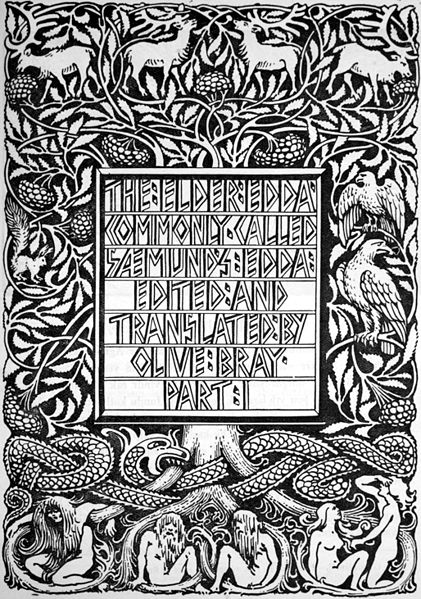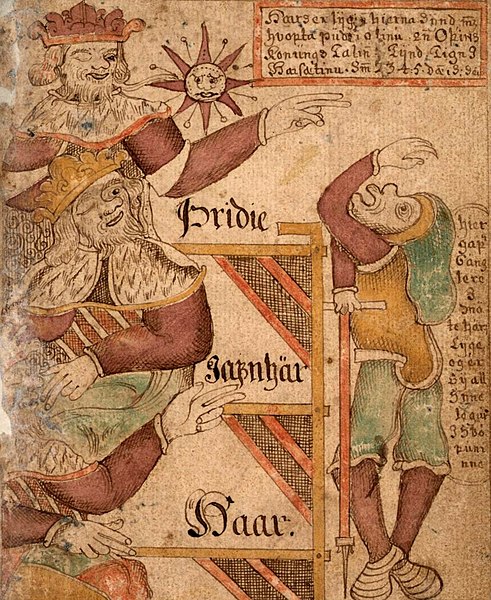"Edda" is an Old Norse term that has been applied by modern scholars to the collective of two Medieval Icelandic literary works: what is now known as the Prose Edda and an older collection of poems now known as the Poetic Edda. The term historically referred only to the Prose Edda, but this usage has fallen out of favour because of confusion with the other work. Both works were recorded in Iceland during the 13th century in Icelandic, although they contain material from earlier traditional sources, reaching back into the Viking Age. The books provide the main sources for medieval skaldic tradition in Iceland and for Norse mythology.
The Poetic Edda titled, The Tree of Yggdrasil.
Manuscript of the Prose Edda
The Prose Edda, also known as the Younger Edda, Snorri's Edda or, historically, simply as Edda, is an Old Norse textbook written in Iceland during the early 13th century. The work is often considered to have been to some extent written, or at least compiled, by the Icelandic scholar, lawspeaker, and historian Snorri Sturluson c. 1220. It is considered the fullest and most detailed source for modern knowledge of Norse mythology, the body of myths of the North Germanic peoples, and draws from a wide variety of sources, including versions of poems that survive into today in a collection known as the Poetic Edda.
Title page of a late manuscript of the Prose Edda written by Snorri Sturluson (13th century), showing the Ancient Norse Gods Odin, Heimdallr, Sleipnir, and other figures from Norse mythology
Gylfi and High, Just-as-High, and Third. Manuscript SAM 66 (Iceland, 1765–1766), Reykjavík, Árni Magnússon Institute for Icelandic Studies.
Thjazi and Loki. Beginning of the myth of the abduction of Iðunn, attested in Skáldskaparmál. Manuscript NKS 1867 4to (Iceland, 1760), Copenhagen, Royal Library




